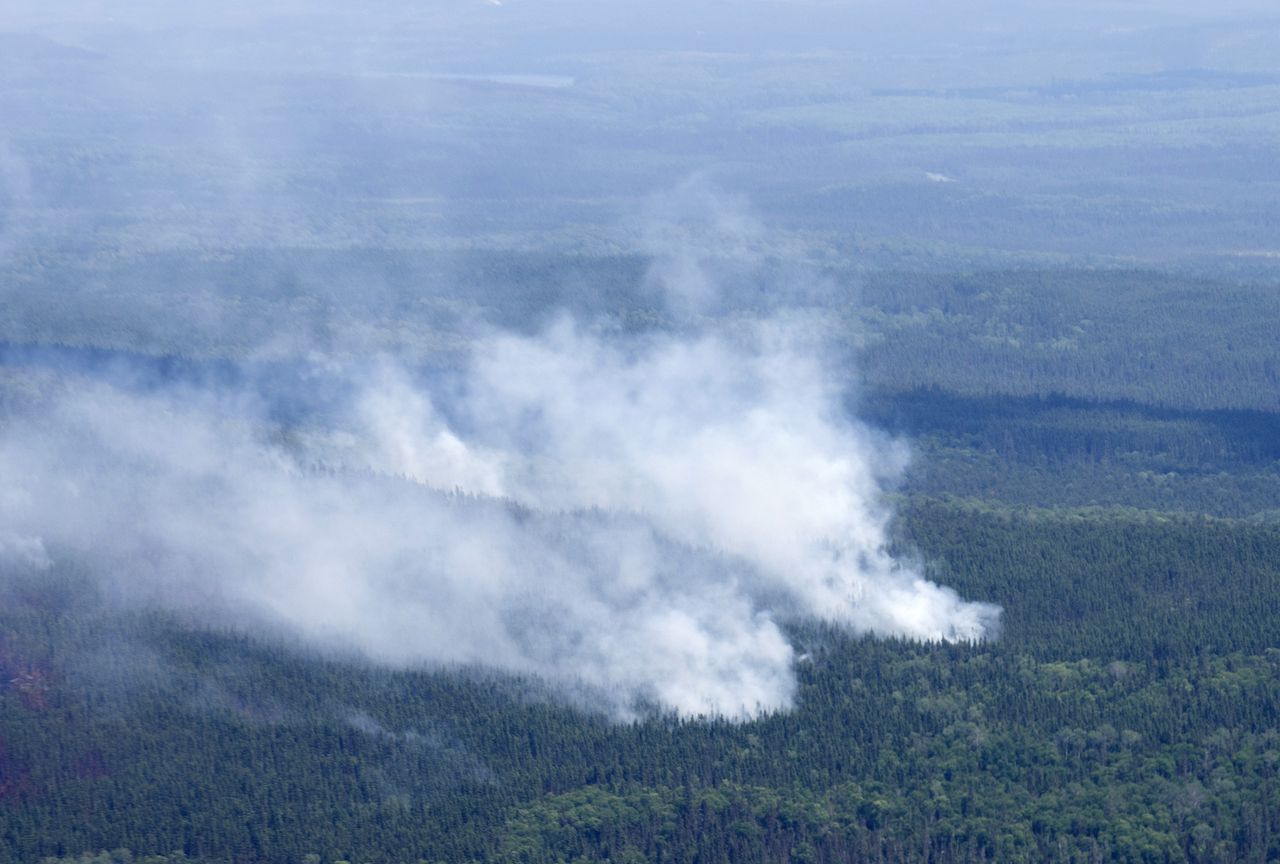North Alabamaâs hazy skies may be thanks to Canadian wildfires
Air quality alerts in North Alabama were at unhealthy levels Monday, thanks in part to what appears to be traces of Canadian wildfire smoke being pushed southward across the continent due to unusual air flow patterns.
Grace Anello, meteorologist for WAAY 31 in Huntsville, said Meridional flow in the jet stream is causing a north to south wind flow movement that’s bringing some Canadian smoke haze into north Alabama. Meridional flow follows a pattern from north to south, or from south to north, along the Earth’s longitude line.
“It’s pushing further south than normal,” Anello said today.
Smoke from wildfires in Canada is moving hundreds of miles into the United States, affecting air quality in many areas across the continental United States. It has most noticeably affected the northeastern United States but has now pushed into the Deep South as well.
Birmingham’s air quality readings are showing that fine particulate matter generated by various sources including wildfire smoke have pushed air quality to unhealthy levels. The unhealthy readings were registering in a band from Huntsville southwest down to the Birmingham metro area. The outlook for the area appears to be better as the week goes on.
About 25 million acres have burned as wildfires continue to rage across Canada, breaking records for total area burned and affecting air quality in both Canada and the United States.
The air quality is especially concerning to those with breathing problems.
People with heart or lung disease, older adults, children and teens are advised to take any of these steps to reduce your exposure:
- Avoid strenuous outdoor activities.
- Keep outdoor activities short.
- Consider moving physical activities indoors or rescheduling them.
The general population is advised to take any of these steps to reduce your exposure:
- Choose less strenuous activities (like walking instead of running) so you don’t breathe as hard.
- Shorten the amount of time you are active outdoors.
- Be active outdoors when air quality is better.
